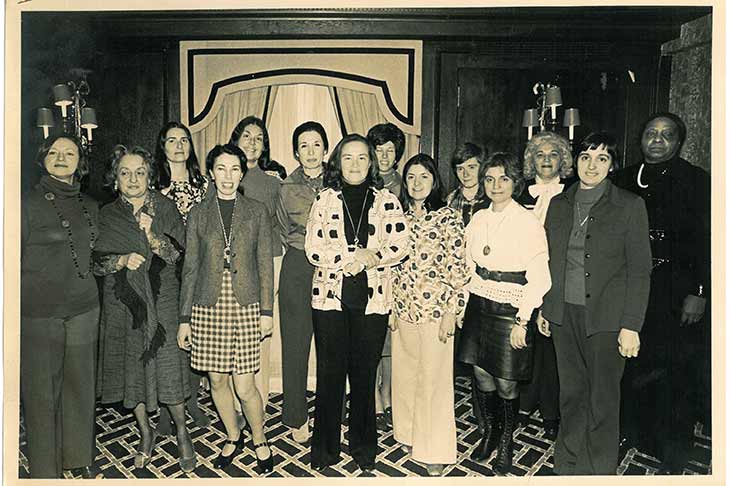Landmark lawsuit records now at Newcomb Archives

Law school alumna Sylvia Roberts (fourth from left) attends a board meeting of the NOW Legal Defense and Education Fund in January 1976. The Newcomb Archives recently acquired some of Roberts" papers. (Photo courtesy of Newcomb College Institute.)
The records of one of the most important victories in pay equity legislation have found a home at Tulane University. This spring the Newcomb Archives received thousands of documents on the life and work of alumna Sylvia Roberts, spanning her 60-year legal career.
Roberts, a 1956 graduate of Tulane Law School, was active in the founding of the National Organization for Women. She is best known for her successful defense of Lorena Weeks on behalf of NOW in a case against Southern Bell Telephone and Telegraph Co., a story that was recently featured in the PBS series "Makers."
In the 1960s, Weeks worked as a telephone operator when she applied for a higher-paying position as a switchman. She was denied on the basis that the job was only open to men, citing a Georgia state rule that women employees could not be made to lift anything heavier than 30 pounds.
Weeks noted that in her current job she was required to lift a 34-pound typewriter every day. She filed a legal appeal but lost in district court. Weeks then began writing all reports by hand in protest, rather than carry her typewriter to her desk, resulting in her suspension. She then brought her case to NOW, and Roberts represented her.
She won the case on appeal in 1969, arguing that many women routinely carried children weighing more than 30 pounds. Weeks was compensated $31,000 in back pay and given the switchman"s job; the case marked an important early legal victory for NOW in the fight against gender-based workplace discrimination.
Roberts recalled, “The Weeks case gave momentum to NOW because it showed that we, as women, could use the system, that we could achieve this equality under the law. It wasn"t fanciful, it wasn"t pie in the sky. It could be done, and we did it.”
The Newcomb Archives staff has worked to preserve the collection so that it should be available to researchers in 2016.
